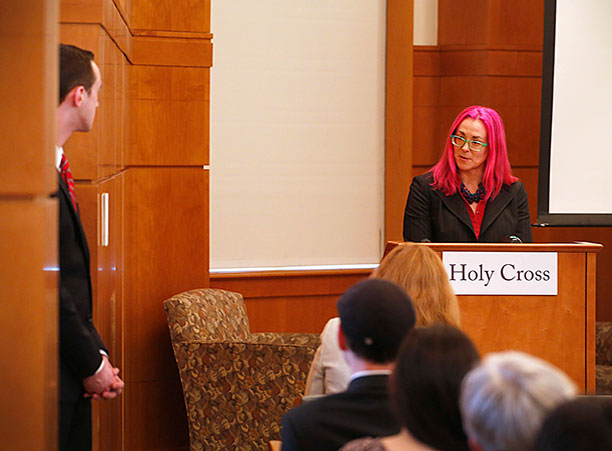 Renée Beard, associate professor of sociology and anthropology at the College of the Holy Cross, is featured on The Academic Minute (broadcast on WAMC Northeast Public Radio), for her research on the stigma associated with Alzheimer’s disease.
Renée Beard, associate professor of sociology and anthropology at the College of the Holy Cross, is featured on The Academic Minute (broadcast on WAMC Northeast Public Radio), for her research on the stigma associated with Alzheimer’s disease.
According to Beard, the first case of Alzheimer’s Disease was first diagnosed in 1906 in a 52 year old German housewife, for the next three-quarters of a century the condition remained extremely rare. The National Institute of Aging and U.S. Alzheimer’s Association was established in the 1980’s and they revised the terminology of the disease to include individuals that were over 65 years of age with so called senility, branding Alzheimer’s disease as the fourth to fifth leading cause of death virtually overnight.
“The diagnosis of Alzheimer’s disease can be difficult for patients to deal with. The medical label unfortunately includes unrelenting social and psychological consequences, individuals often feel like second class citizens. They often want to emphasize that they are the same person they have always been; but now that includes a person with memory difficulties,” says Beard.
“American cultural willingness to persecute our most deeply forgetful members reflects and reinforces deep seated ageism and fear of death” explains Beard. “If old age was seen as a privilege and we promoted inclusion over dread, we might well end up better equipped to imagine ourselves as future old people – forgetful or not.”
The Academic Minute is a syndicated segment and also appears on Inside Higher Ed.
This “Holy Cross in the News Item” is by Kelly Ethier.


